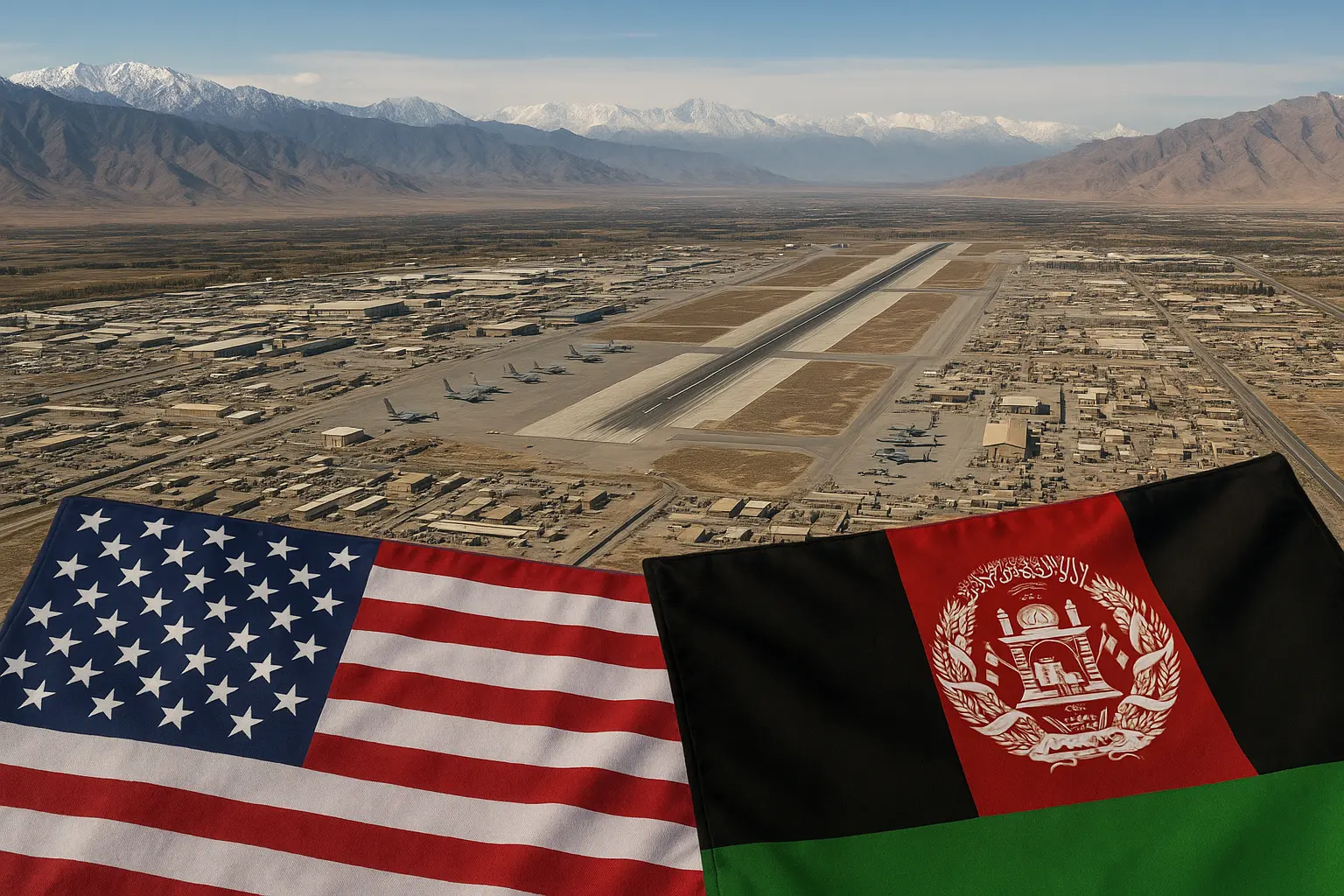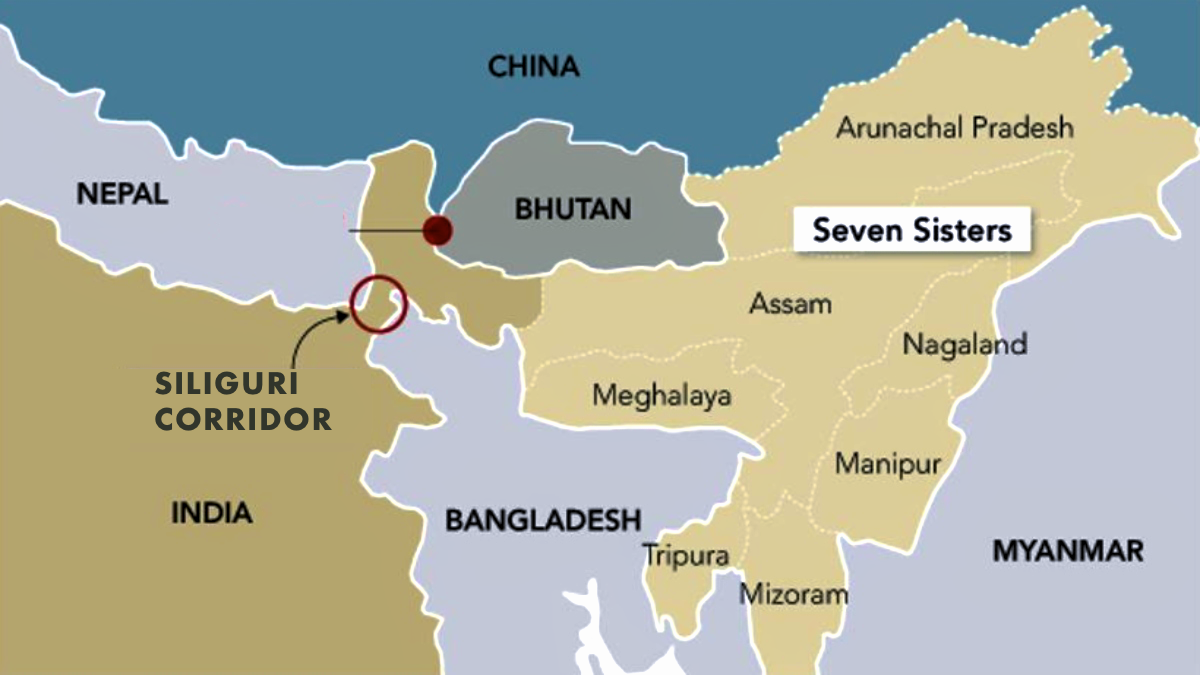Taliban Warns: No Return to Bagram—Even After 20 Years

The debate around Afghanistan’s Bagram Airbase has resurfaced in global geopolitics. Recently, the Taliban made strong statements against any U.S. return to the base, declaring they would resist “even for 20 years” if necessary. Meanwhile, former U.S. President Donald Trump has renewed calls for regaining control of this strategic military facility. With Afghanistan’s frozen assets, China’s failed investment deals, and shifting alliances in Asia, the situation is complex and worth a closer look.
The Strategic Importance of Bagram Airbase
Bagram Airbase, located north of Kabul, is one of the most significant military installations in Central Asia.
- Origins: Built by the USSR in the 1970s and later developed extensively by the U.S. during its 20-year presence in Afghanistan.
- Capacity: Equipped with hospitals, airstrips, and infrastructure to host tens of thousands of troops.
- Location Advantage: Close to China’s Lop Nur region, where nuclear tests were historically conducted. This makes Bagram valuable for surveillance, counter-terrorism operations, and strategic presence in Asia.
The Taliban’s Position
The Taliban leadership has publicly rejected any possibility of handing over Bagram to the U.S., stating that not “an inch of Afghan land” will be given.
- Symbolism: Holding Bagram reinforces Taliban sovereignty after forcing U.S. troops to withdraw in 2021.
- Leverage: The Taliban understands its bargaining power and is framing rejection as strength, while keeping room for negotiation if benefits align with its interests.
The U.S. Perspective
From Washington’s viewpoint, returning to Bagram has both strategic and practical benefits:
- Counterterrorism: A forward base for monitoring extremist groups in the region.
- China Watchpoint: A vantage location near sensitive Chinese sites.
- Geopolitical Leverage: Strengthening U.S. influence in Asia amid rising competition with China and Russia.
Even U.S. media outlets that often criticise Trump have described a return to Bagram as an idea “worth exploring.”
What Could the Taliban Gain?
While the Taliban’s rhetoric is uncompromising, history shows negotiations can shift when mutual benefits are clear. Two major incentives could influence talks:
Unfreezing of Afghan Assets:
- Afghanistan has 7 billion of dollars frozen in Western banks after the Taliban takeover in 2021.
- Unfreezing these assets could stabilise the economy without direct U.S. funding.
International Recognition:
- Currently, only a handful of countries recognise the Taliban government.
- U.S. backing could push allies to extend legitimacy, opening diplomatic and economic channels.
These concessions, in exchange for a long-term lease or limited access to Bagram, could reshape Afghanistan’s international standing.
China Factor: A Failed Partnership
Two years ago, China and the Taliban announced a $540 million oil field investment deal. However, reports suggest the deal collapsed due to operational challenges, harassment of Chinese workers, and alleged contract violations by Taliban authorities.
- Result: Mutual distrust grew, leaving Beijing cautious about deeper economic involvement.
- Opportunity for U.S.: Washington sees this breakdown as a chance to re-enter Afghanistan’s orbit, offering an alternative to China.
Timing and Geopolitical Calculations
Timing plays a critical role in international negotiations.
- China–India Dynamics: As Trump signalled pressure on India, China responded by improving ties with New Delhi, highlighting opportunistic strategies in the region.
- Taliban’s Needs: With failed Chinese projects and economic instability, the Taliban may find U.S. engagement more practical than previously acknowledged.
- U.S. Priorities: Given budget strains and commitments in Ukraine, leveraging Afghan frozen assets (instead of fresh funds) is a low-cost strategy.
Possible Scenarios Ahead
- Full Rejection: Taliban continues to resist U.S. pressure, holding firm on sovereignty.
- Negotiated Lease: A long-term arrangement (50–99 years) where Bagram is leased in return for financial and diplomatic concessions.
- Conditional Access: U.S. gains limited use of Bagram for counterterrorism operations under strict Afghan oversight.
The outcome will depend on both sides’ willingness to balance principle with pragmatism.
Conclusion
The Bagram Airbase debate reflects more than a military question — it’s a test of leverage, timing, and opportunity in international politics. The Taliban’s strong rhetoric signals defiance, but underlying economic and diplomatic pressures may open the door to negotiation. For the U.S., regaining access would enhance its Asian strategy without heavy new costs. The coming months will determine whether symbolic resistance outweighs practical benefit for both sides.
Disclaimer: This article is based on publicly available reports and independent analysis. Readers are encouraged to consult multiple sources for a complete picture.









No comments yet. Be the first to comment!